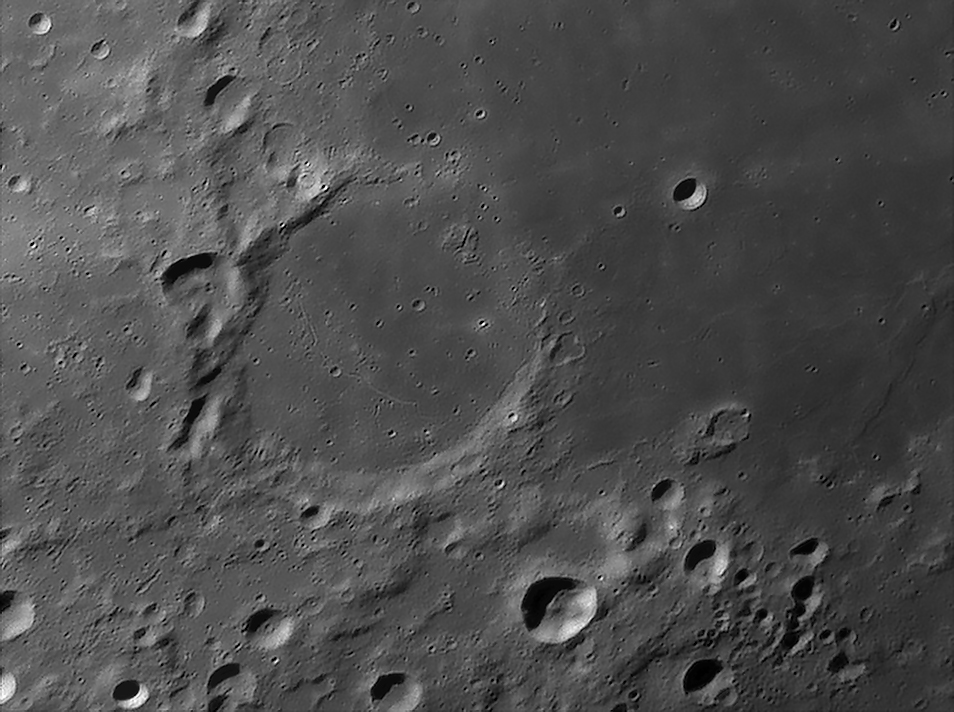
image by Bob Pilz
Bob has found a way to get better images - reprocess old ones! In this new version of a year-old view of Fracastorius, features are more clearly shown, creating a nice opportunity for a field trip of oddities. A real field trip would start with the incomplete and tilted rim of Fracastorius, the rille that crosses it, and the differences in maria material inside and outside of the rille. But that is all old stuff, here is what else is lurking in the background. Start with the tiny hillock between the rille and the southern rim of Fracastorius. With this high res view a tiny pit can be detected near the hill’s center. If this is a volcanic dome it is quite small, and relatively steep to be seen in this lighting. If its not a dome, it is an unexplained bump that just happened to have received an impact near its top. One of these interpretations is a lot more realistic than the other! Other micro-features are the three or more short crater chains south of Fracastorius. These are secondary craters, but did they come from Piccolomini, or some more distant fresh crater? If you project them backward what do you find as the source? Finally, notice the concentric crater - Fracastorius E - on the northwest rim of Fracastorius. Other odd features in this area were described on the low Sun view of the LPOD of May 3; compare that LPOD with this one to increase your understanding.
Technical Details:
2006/10/10, Utime: ~08:52. 200mm f/6 Newtonian reflector, Televue 3x Barlow, DMK 21BF04 B/W camera, Blue IR-block filter; 30 fps, 1/60 sec, 400/6000 frames stacked and processed in Registax V4, PS CS, Focus Magic. Taken from Lat: 35 degrees 36 minutes N, Long: 82 degrees 33 minutes W, Elev: ~850m.
Related Links:
Rükl chart 58
Bob’s website
Yesterday's LPOD: Another Megadome
Tomorrow's LPOD: Before and After
COMMENTS?
Register, Log in, and join in the comments.



